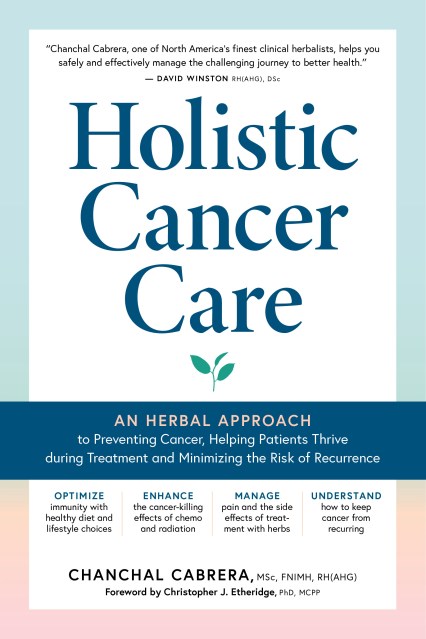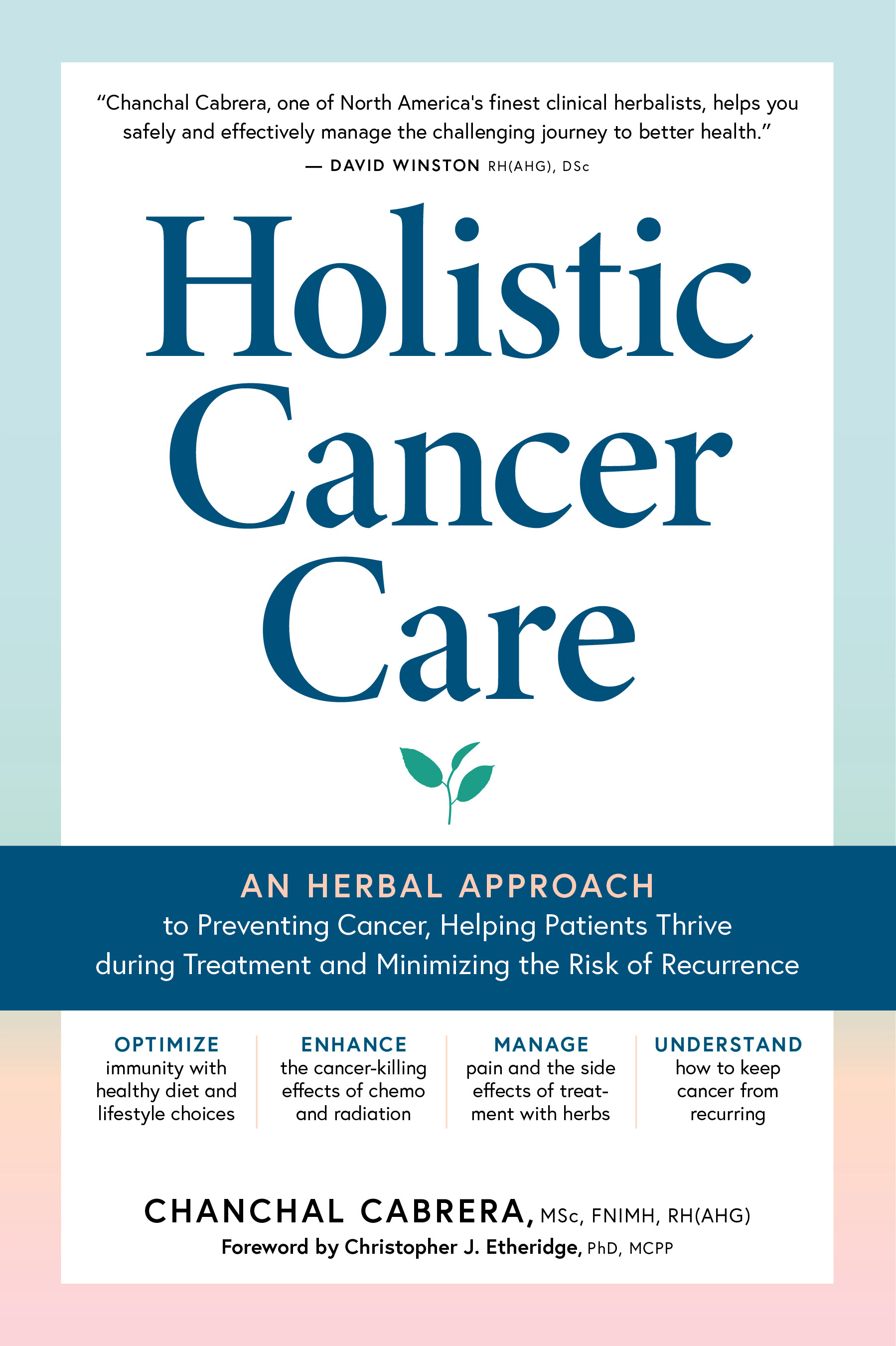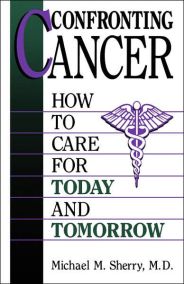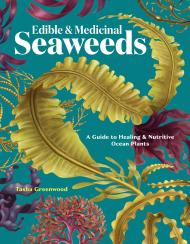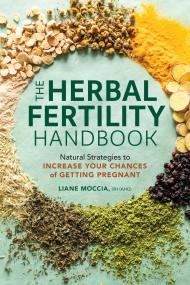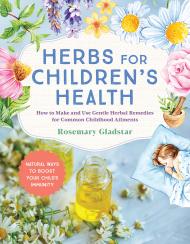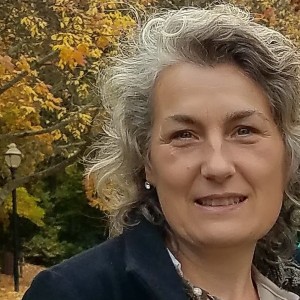By clicking “Accept,” you agree to the use of cookies and similar technologies on your device as set forth in our Cookie Policy and our Privacy Policy. Please note that certain cookies are essential for this website to function properly and do not require user consent to be deployed.
Holistic Cancer Care
An Herbal Approach to Preventing Cancer, Helping Patients Thrive during Treatment, and Minimizing the Risk of Recurrence
Contributors
Formats and Prices
- On Sale
- Apr 4, 2023
- Page Count
- 400 pages
- Publisher
- Storey
- ISBN-13
- 9781635863741
Price
$14.99Price
$19.99 CADFormat
Format:
- ebook $14.99 $19.99 CAD
- Audiobook Download (Unabridged) $31.99
- Trade Paperback $29.99 $37.99 CAD
This item is a preorder. Your payment method will be charged immediately, and the product is expected to ship on or around April 4, 2023. This date is subject to change due to shipping delays beyond our control.
Buy from Other Retailers:
Patients facing a cancer diagnosis often feel at the mercy of an illness they don't understand and in the hands of doctors offering treatments that focus on the cancer, instead of on the patient. In Holistic Cancer Care, Chanchal Cabrera, a consulting medical herbalist with more than 20 years specializing in holistic oncology, provides an in-depth guide to using herb-based therapies in conjunction with conventional treatments. Putting the patient front and center, holistic therapies can help boost the immune system, which can slow the spread of certain cancers and, in some cases, even enhance the cancer-killing effects of chemotherapy. Herbal medicine and other therapies also offer effective ways of dealing with the side effects of chemotherapy and radiation. Drawing from decades of clinical experience helping patients recover from cancer, Cabrera provides a wealth of safe, well-researched information, including specific herbal formulas, important discussions about dosing and safety, detox protocols, recommendations for nutritional supplements, simple recipes for nourishing meals, and patient case histories that demonstrate the power of the strategies she recommends.
This publication conforms to the EPUB Accessibility specification at WCAG 2.0 Level AA.
-
"Chanchal Cabrera’s book is a unique and necessary compendium of advanced herbal knowledge that is directly pertinent to cancer patient care. The book is useful for both people with cancer and health care providers. I have assigned Cabrera’s book as required reading to my oncology medical residents. This book was assembled by a true herbal medicine expert and is an excellent addition to the field of integrative oncology."Leanna Standish, PhD, ND, LAc, FABNO, co-founder and co-director of the Advanced Integrative Medical Science (AIMS) Institute, senior research scientist at Bastyr University’s School of Naturopathic Medicine, and a fellow of the American Board of Naturopathic Oncology, HerbalGram: The Journal of the American Botanical Council
-
“Chanchal Cabrera, one of North America’s finest clinical herbalists, helps you to safely and effectively manage the challenging journey to better health.”
—David Winston RH(AHG), DSc(hc), author of Adaptogens: Herbs for Strength, Stamina and Stress Relief
"Combines traditional knowledge with modern science to provide effective strategies for every stage of the cancer journey. Patients and families, as well as clinicians, will benefit from Cabrera’s thorough discussions, clear, practical guidelines, and wisdom of experience.”
— Nalini Chilkov, L.Ac, OMD, Founder, Integrative Cancer Answers, American Institute of Integrative Oncology
“Holistic Cancer Care provides not just a thorough foundational understanding of cancer its terminology but practical advice to help anyone with a diagnosis make decisions on subsequent treatment with more confidence. It provides a sense of empowerment by providing the reader with practical advice, knowledge on food compounds, supplements, recipes, simple food guidelines and strategies for optimal success. The cancer Materia Medica and the specialized section for practitioners are invaluable resources.”
— Carolina Brooks, BA (Hons), ND, IFMCP, Creator of the Vitamorphic Method ® -
“A well-organized resource of timely, sound advice—from cancer prevention to treatment support and recovery. It reinforces the single most important thing we should focus on: health optimization, through principles based in traditional herbal medicine and nutrition, that will make a lasting difference in our quality of life and lifespan. I highly recommend this book as an essential guide to healing and thriving.”Donald Yance, MH, CN, RH(AHG), president and founder of the Mederi Center
-
“This well-organized, informative, user-friendly book speaks directly to many of the issues that cancer patients are trying to understand. Cabrera provides guidelines for navigating the path to better health, focusing on botanicals, diet, and supplements, along with emotional and spiritual support.”Mary Bove, ND, author of An Encyclopedia of Natural Healing for Infants and Children
-
“Cabrera brings decades of experience as a skilled herbalist in clinical practice, customizing herbal formulas for each patient. She understands the wonderful and deep benefits of herbal medicine for working with the body’s wisdom, and not against it.”Christopher Hobbs, PhD, author of Christopher Hobbs’s Medicinal Mushrooms: The Essential Guide
-
“This comprehensive guide eloquently illustrates the important contribution of herbal medicine to cancer risk reduction and collaborative cancer care.”Lise Alschuler, ND, co-author of Definitive Guide to Cancer and Definitive Guide to Thriving After Cancer, Professor of Clinical Medicine, University of Arizona Andrew Weil Center for Integrative Medicine
-
“Chanchal Cabrera, one of the most respected herbalists of North America, has created an impressive resource for navigating a path forward after a cancer diagnosis. Well organized, user friendly, and extremely relevant to clinical therapy, it’s a must have for patients and physicians alike.”Dr. Jillian Stansbury, ND, Director of Battle Ground Healing Arts and BG Healing Arts Apothecary
Newsletter Signup
By clicking ‘Sign Up,’ I acknowledge that I have read and agree to Hachette Book Group’s Privacy Policy and Terms of Use
